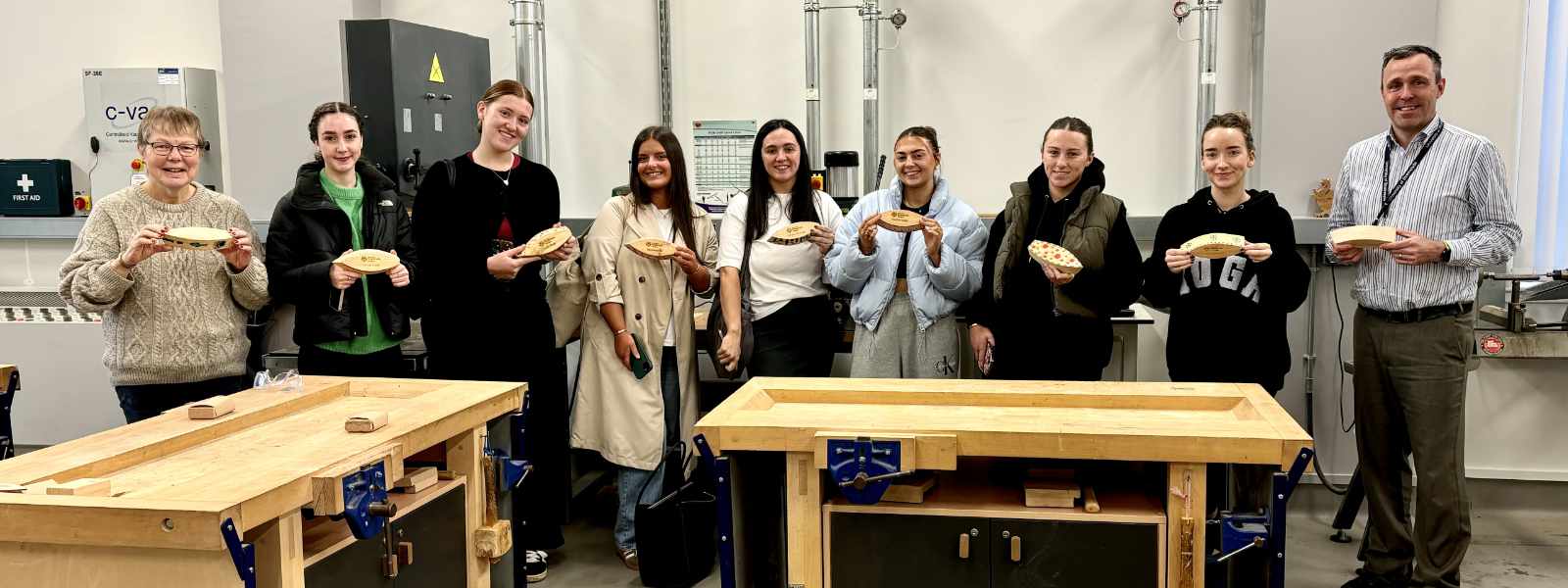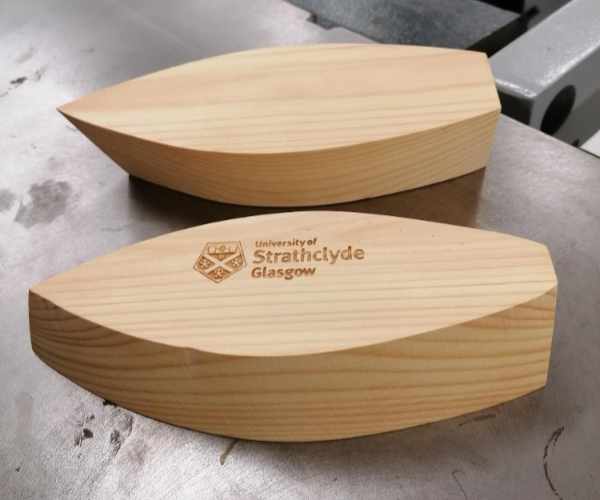
Student teachers at the University of Strathclyde are learning about the Arctic Ocean and the impact of climate change by launching their own miniature wooden boats.
Through the Float Your Boat project, an initiative of the International Buoy Programme based in Seattle, USA, students on the Primary Education programme crafted small, handmade wooden boats – stamped with their name and unique identifying number – which were deployed onto an ice floe alongside a buoy equipped with a global positioning satellite link.

The boats’ location can be tracked as they follow the buoy on the ocean currents into warmer waters where the ice floes subsequently melt and the boats eventually land on distant shores.
Inclusion and diversity
The project is part of a class module on inclusion and diversity in Science, Engineering, Technology and Mathematics (STEM), led Dr Jane Essex, exploring how inclusion and diversity in STEM can reshape perceptions of science and its global impact.
The project mirrors traditional and Indigenous knowledge – often excluded from formal science – which offers vital insights into environmental change.
Robert Collins, Lead for Vertically Integrated Projects for Sustainable Development (VIP4SD) at the Strathclyde Institute of Education, said: “‘Float Your Boat’ is a great example of our commitment to connecting local STEM learning with global challenges. The hands-on approach enables future educators to inspire their pupils with meaningful, real-world science.
Indigenous communities in the Arctic have long monitored climate shifts through detailed observation. Their knowledge, based on inductive reasoning and pattern recognition, has helped track phenomena such as melting ice and declining animal populations.
“Although traditionally overlooked by professional scientists, this way of understanding is now recognised as invaluable for studying climate change. They recognise that the knowledge of Indigenous people offers an important way of monitoring events in detail, with the benefit of the observer being very familiar with the location, having long inks to it through their families and communities, and caring deeply about it.
“The Float Your Boat project provides students with a tangible, personal connection to the Arctic, of the sort that Indigenous people have.”
Critical data
The students embraced the project, choosing to craft their own boats using Strathclyde’s technology workshop, supported by technology tutor Martyn Hendry, rather than ordering pre-made versions from the Project.
After shaping and sanding the vessels, the students decorated them and added unique identifiers engraved with the help of laser cutters. The boats were then sent to Seattle, in preparation for release into the Arctic Ocean. The boats are made from wood so that any that are not recovered will undergo biodegradation and be rendered harmless.
The project has a history of success, with boats travelling from Iceland to Shetland and beyond, revealing critical data about sea currents. Strathclyde students now await updates on their boats' journeys, which could provide further insight into the evolving Arctic ecosystem.
Dr Essex said: “The course is intended to help students to really understand the opportunities there are in STEM and that there are very different types of learners, and ways of learning, out there and that it’s important to consider the different people who use and engage with science.”